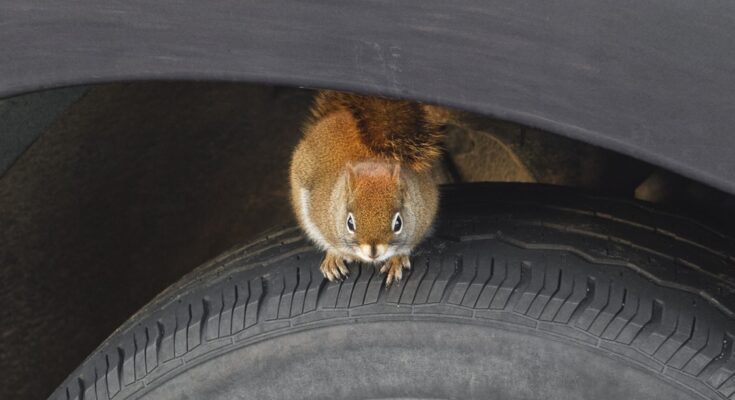Many car owners have the unfortunate experience of opening the engine hood and discovering a rodent in the bay. Mice, rats, and squirrels are frequent offenders of this unauthorized entry, and they can be a real nuisance. Here, we’ll discuss the problem of rodents in your car and how to address it.
Why Do Rodents Target Cars?
Cars often seem like perfect hideouts for rodents. They’re warm, safe from larger predators, and offer plenty of hidden spaces to explore or nest in.
If you frequently park outdoors, especially near wooded areas or places with high rodent populations, your car is more likely to become a victim of these tiny troublemakers.
Signs of Rodents in Your Car
How can you tell if rodents are making themselves too comfortable in your vehicle? Consider these clues:
- unusual odors like the smell of urine or gnawed food
- droppings scattered around the car’s interior or engine area
- chewed wires or components, often found under the hood or dashboard
- shredded materials such as seat foam, wrapper bits, or fabric debris in the engine bay or interior
- nests built in the warm, hidden corners of your car
How To Address the Problem
If you suspect rodents are camping out in your car, act quickly. Here’s how to deal with the situation.
1. Thoroughly Inspect and Clean
Look under the hood, behind seats, and in the trunk for nests or chewed components. Remove any debris or signs of infestation immediately. Cleaning thoroughly can also help eliminate scents that may attract more rodents.
2. Protect Your Wiring and Components
Rodents love to gnaw on wiring, likely to wear down their incisors. You can prevent this dental care and reduce failure-inducing wear in your car’s wiring by applying a deterring oil or wrap to the cables. If damage has already occurred, take your vehicle to the mechanic for a professional fix.
3. Use Rodent Deterrents
Consider placing rodent deterrents like peppermint oil, mothballs, or ultrasonic devices in and around your car. These can help make your vehicle less appealing to sneaky visitors.
4. Park Strategically
Whenever possible, store your car in a garage or an area with fewer rodents. Maintain clutter-free surroundings near where you park to reduce nesting opportunities.
5. Get Professional Pest Control Help
For severe infestations, calling in a pest control expert could be your best option.
Rodents in your car might be a surprising problem, but it’s one you can address with the right steps. By following this advice, you can discourage these uninvited guests from returning or even nesting in the first place.



